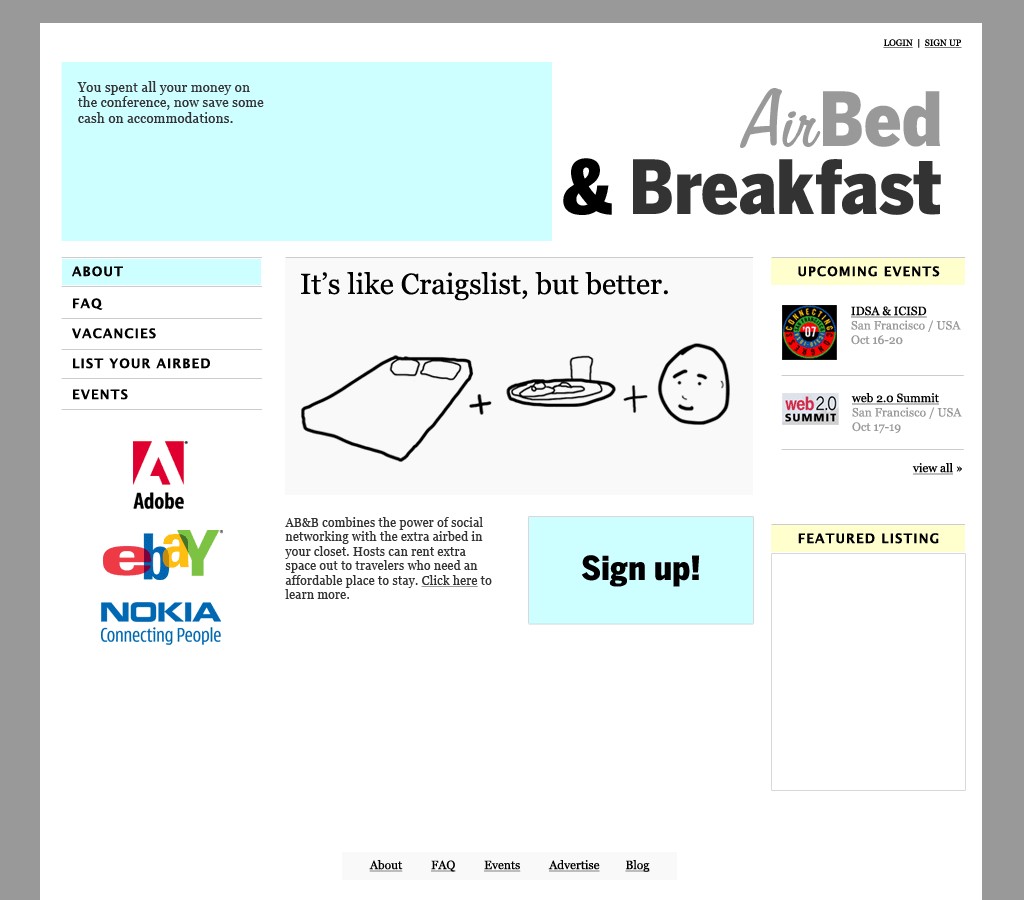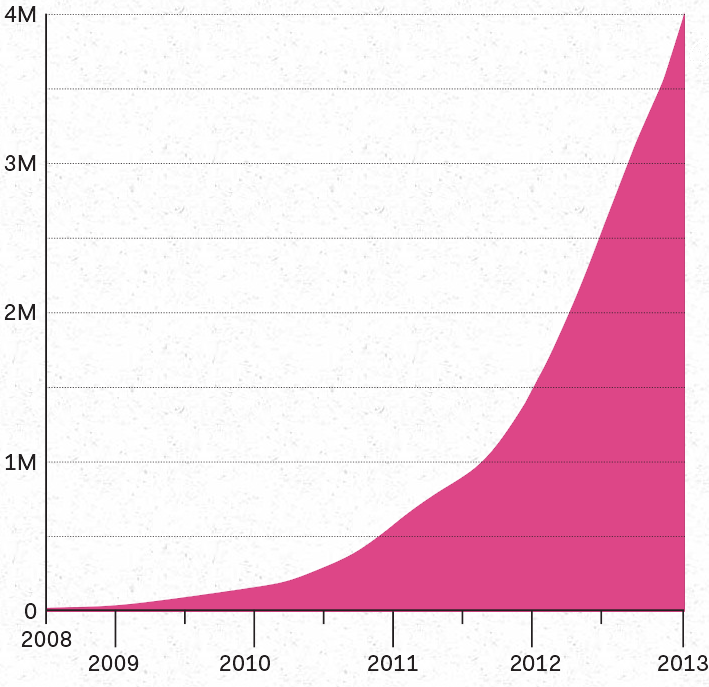It’s like Craigslist, but better!
June 27, 2010 How great big things often start off as small ugly things and grow over time.
How great big things often start off as small ugly things and grow over time.
I first met AirBnB Co-founder Joe Gebbia, on a cloudy October day in San Francisco in 2007. I remember the day well, because we met at the Brainwash Cafe on Folsom street, on the day of the Folsom street fair, which we both found out during our meeting was a bad time and place for a business meeting.
I had responded to a craigslist posting for a ‘Contract CSS Developer’, which, we agreed would cost a price of $200 to develop a static html homepage for their yet to launch web site, airbedandbreakfast.com.
What often gets lost in the public narratives of startup success stories is the account of the early days. What follows is the story of how a seemingly small idea transformed into a truly transformative company.
What you see here in the background is the first version of Airbnb (known back then in October 2007 as AirBed & Breakfast). Its not exactly the epitome of design we know and love their service for today, but it was the start of something big.
Third time’s a charm
The original idea for what became Airbnb was a clever way for design conference participants (co-founders Joe and Brian) to find and rent out their apartment space to make money. There were many iterations along the way to their eventual success, but the three following versions where the most important evolutionary steps.
Version 1: Rent out your mattress to a fellow conference goer from out of town. Timeframe: 2008.
Verdict: Fail. Although the core of the idea that eventually made Airbnb a success was present here. Limited by the frequency of events and building up enough early supply, the idea failed to take off. You can see from the screenshot above that the original planned business model was even brand sponsorship instead of the transaction fee model they have today.
Version 2: Rent out your spare bedroom to weary travelers on the cheap to make $$ towards rent. Provide them with a real breakfast and provide them with a real ‘local’ experience. Timeframe: 2009.
Verdict: Fail. The company’s revenue was flatlined at $200 per week. Split between three young founders living in San Francisco, this meant near indefinite losses on zero growth.
After making the realization that one of the reasons that the listings weren’t getting applicants was the lack of quality photos.
The three-man team grabbed the next flight to New York and upgraded all the amateur photos to beautiful images. There wasn’t any data to back this decision originally. They just went and did it. A week later, the results were in: improving the pictures doubled the weekly revenue to $400 per week. This was the first financial improvement that the company had seen in over eight months. They knew they were onto something.
This was the turning point for the company. Gebbia shared that the team initially believed that everything they did had to be ‘scalable.’ It was only when they gave themselves permission to experiment with non-scalable changes to the business that they climbed out of what they called the ‘trough of sorrow.’ — How Design Thinking Transformed Airbnb from a Failing Startup to a Billion Dollar Business
Version 3 and beyond: Rent out your entire home or apartment to a verified and trusted stranger. “Travel like a human being”. Timeframe: 2010 and beyond.
Verdict: Success!

As you can see in the chart above, it wasn’t until the middle of 2010, that growth really started to accelerate, almost 3 years into the company’s journey — chart source
Lesson Learned
While I had thought nothing special of our initial encounter back in 2007 until we ran into each other a two years later at Ycombinator’s Startup School event in Berkeley, what I had failed to realize then was that the original insight and passion for which the idea was formed was a genuine one.
This coupled with the perseverence of the founders to iterate upon their initial product, tactics and expand the scope of their vision at each subsequent step in the journey, led to the eventual success of the company.
By no means an overnight success, and the story is still not over.